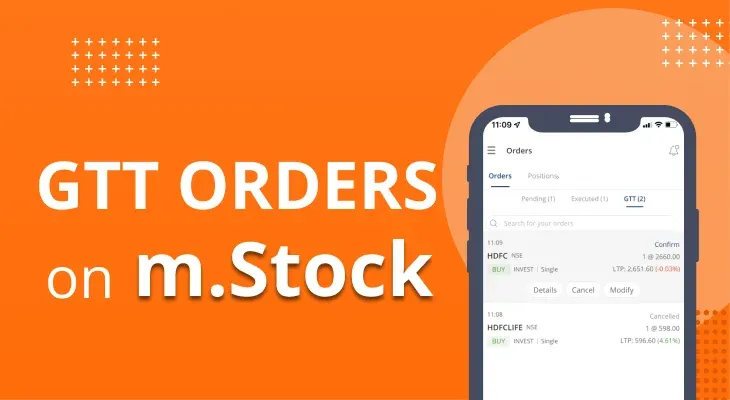
Advantages & Disadvantages of Pledge Shares
Pledging shares is a common practice in the stock market that allows shareholders, especially promoters, to leverage their holdings as collateral for securing loans. While it can offer quick liquidity and financial flexibility, pledging shares also comes with risks. This article explains the concept of share pledging, its benefits, disadvantages, and factors to consider before pledging or investing in companies with high pledged shares.
What is the Meaning of Pledging Shares?
Share pledging is the process of using shares as collateral to secure loans or meet financial requirements. Both retail investors and promoters can pledge shares, but the purpose and implications differ for each.
Retail investors can pledge shares to borrow funds for personal needs, trading, or investments. This enables them to leverage their holdings without liquidating their portfolio. Promoters often pledge shares as collateral to raise large-scale funds for their businesses. This is a common practice among companies for expansion, working capital, or debt repayment.
How Does Share Pledging Work?
The process of pledging shares involves several steps:
Valuation of Shares: Shares are assessed based on their current market price and liquidity.
Haircut Application: A percentage (called a "haircut") is applied to the value of pledged shares, reducing their loanable value. For example, if the haircut is 40% and the shares are worth ₹ 10 lakh, the loan value would be ₹ 6 lakh.
Agreement and Loan Disbursement: A formal agreement is signed between the borrower and lender, and the loan is disbursed based on the assessed value of the pledged shares.
Monitoring of Shares: The lender continuously monitors the share price to ensure that the loan remains adequately secured.
Release or Liquidation: Once the loan is repaid, the shares are released. If the borrower defaults, the lender can sell the shares to recover the loan amount.
How it works for Retail Investors:
Loan Against Securities: Retail investors approach their broker with which they maintain their portfolio of shares.
Loan Disbursement: Based on the value of pledged shares, lenders offer a loan at a set interest rate.
Repayment and Release: Once the loan is repaid, the shares are released back to the investor.
Example:
A retail investor holds shares worth ₹ 5 lakh. If they pledge these shares with a 40% haircut, the loanable value is ₹ 3 lakh. The investor can use this loan for trading without selling their portfolio.
Why Do Promoters Pledge Shares?
Share pledging by retail investors is primarily to gain leverage in the form of a loan to buy more shares that they would not have been able to with their own capital. However, promoters may pledge shares for several reasons:
Business Expansion: To fund projects, acquire assets, or invest in growth opportunities.
Working Capital: To meet short-term financial obligations or maintain smooth operations.
Debt Repayment: To restructure or clear existing liabilities.
Personal Needs: Occasionally, promoters may pledge shares for personal financial requirements.
What is a Haircut in Share Pledging?
You may have heard the term often, and it's already been mentioned in this article as well - ‘haircut’. But what is a haircut? A haircut refers to the reduction in the value of pledged shares to account for market volatility and liquidity risks.
Example Calculation:
Market Value of Shares: ₹ 10 lakh
Haircut Percentage: 30%
Loanable Value = ₹ 10,00,000 × (1 - 0.30) = ₹ 7,00,000
The haircut ensures that the lender has a buffer against price fluctuations in the pledged shares.
How it works for Promoters:
Collateral for Corporate Loans: Promoters pledge a portion of their shares to lenders.
Loan Monitoring: Lenders continuously monitor the share price and the borrower’s ability to repay.
Default Consequences: If the promoter fails to repay, lenders can sell the pledged shares in the open market.
Example:
A promoter owns 1 crore shares of a company trading at ₹ 50 per share. They pledge 20 lakh shares with a 30% haircut, securing a loan of ₹ 7 crore. The funds may be used for a new project or to settle corporate debts.
Advantages of Pledging Shares
Pledging shares can be a strategic financial tool for both retail investors and promoters, offering distinct benefits:
For Retail Investors
Liquidity Without Selling: Allows you to access funds without liquidating your portfolio, enabling you to retain ownership and potential capital gains.
Investment Opportunities: Provides immediate funds for new investments or to average down existing positions in the stock market.
Flexibility: Loans against shares often have flexible repayment terms compared to personal loans.
Leverage Potential: Amplifies your investment capacity, allowing for larger trades or business ventures.
For Promoters
Non-Dilutive Financing: Promoters can raise funds without issuing new shares, maintaining their ownership stake and voting rights.
Supports Business Growth: The funds raised can be used for business expansion, working capital, or debt restructuring.
Efficient Fundraising: Quickly secures large-scale financing by leveraging existing assets without long procedural delays.
Customised Loan Structures: Promoters often receive tailored financing options based on pledged shares' value and company performance.
Disadvantages of Pledging Shares
While pledging can be beneficial, it carries significant risks for both retail investors and promoters:
For Retail Investors
Margin Calls: Falling share prices can trigger margin calls, requiring additional collateral or immediate repayment.
Risk of Asset Loss: Failure to repay the loan can lead to the broker selling off the pledged shares, leading to a permanent loss of assets.
Interest Costs: The loan comes with interest payments that can erode returns if the borrowed funds are not used effectively.
Market Volatility: Dependence on share prices makes this a risky proposition in volatile markets.
For Promoters
Negative Market Sentiment: High levels of pledged shares by promoters can raise concerns among investors about the company’s financial health.
Control Risk: If pledged shares are sold due to non-repayment, promoters risk losing control over the company.
Pressure During Volatility: Share price drops can lead to immediate margin calls, causing financial strain.
Reputational Impact: Frequent or excessive pledging may affect the company’s image, reducing investor confidence and stock valuation.
Both retail investors and promoters should weigh these advantages and disadvantages carefully before pledging shares, ensuring they understand the potential implications in their financial and market contexts.
Conclusion
Pledging shares is a double-edged sword. While it offers quick liquidity and financial flexibility, it also carries significant risks, including potential loss of ownership and market volatility. For investors, analysing the level of pledged shares and understanding its implications is critical before making investment decisions.
FAQ
What happens if the value of pledged shares falls?
If the value of pledged shares falls below the lender's acceptable level, the lender may issue a margin call. The borrower must either put up more collateral or pay back a part of the loan. If they fail to do so, the lender can sell the pledged shares to recover the loan.
What does pledging shares mean?
Pledging shares refers to using shares as collateral to obtain a loan. Both retail investors and promoters can pledge shares to meet personal or business financial requirements without selling their holdings.
Why do promoters pledge shares?
Promoters pledge shares to raise funds for business expansion, working capital needs, or debt repayment. It allows them to secure large-scale financing without diluting ownership in their company.
How does share pledging work?
To pledge shares, an investor or promoter transfers their shares to the lender as collateral. The lender provides funds based on the market value of the shares, considering a haircut percentage. The shares remain in the borrower's name but cannot be sold unless the loan is repaid or default occurs.
What is a haircut in share pledging?
A haircut is the percentage by which the market value of pledged shares is reduced to calculate the loan amount. For example, if shares worth ₹10 lakh have a 30% haircut, the lender will offer a loan of ₹7 lakh.
Can retail investors pledge shares?
Yes, retail investors can pledge shares to obtain loans for personal or investment purposes. However, they should be cautious about margin calls and ensure they can repay the loan within the stipulated time.
What are the risks of pledging shares?
The main risks include margin calls due to declining share prices, potential loss of shares if the loan is not repaid, and the cost of interest payments. Promoters may also face reputational damage and loss of control over the company if pledged shares are sold.
How can pledged shares impact a company’s reputation?
Excessive pledging by promoters may raise concerns about the company's financial stability, affecting investor confidence. It could lead to negative sentiment, lowering stock prices and increasing market scrutiny.
Are there any tax implications for pledging shares?
Pledging shares itself does not have direct tax implications. However, the capital or other gains received through the use of funds may be taxable. Consult a tax advisor for specific details.
What should I keep in mind before pledging shares?
You should assess their repayment ability, understand the terms of the loan agreement, and monitor the pledged shares' market value to avoid margin calls. Moreover, use funds for productive purposes to generate returns that exceed loan costs.


